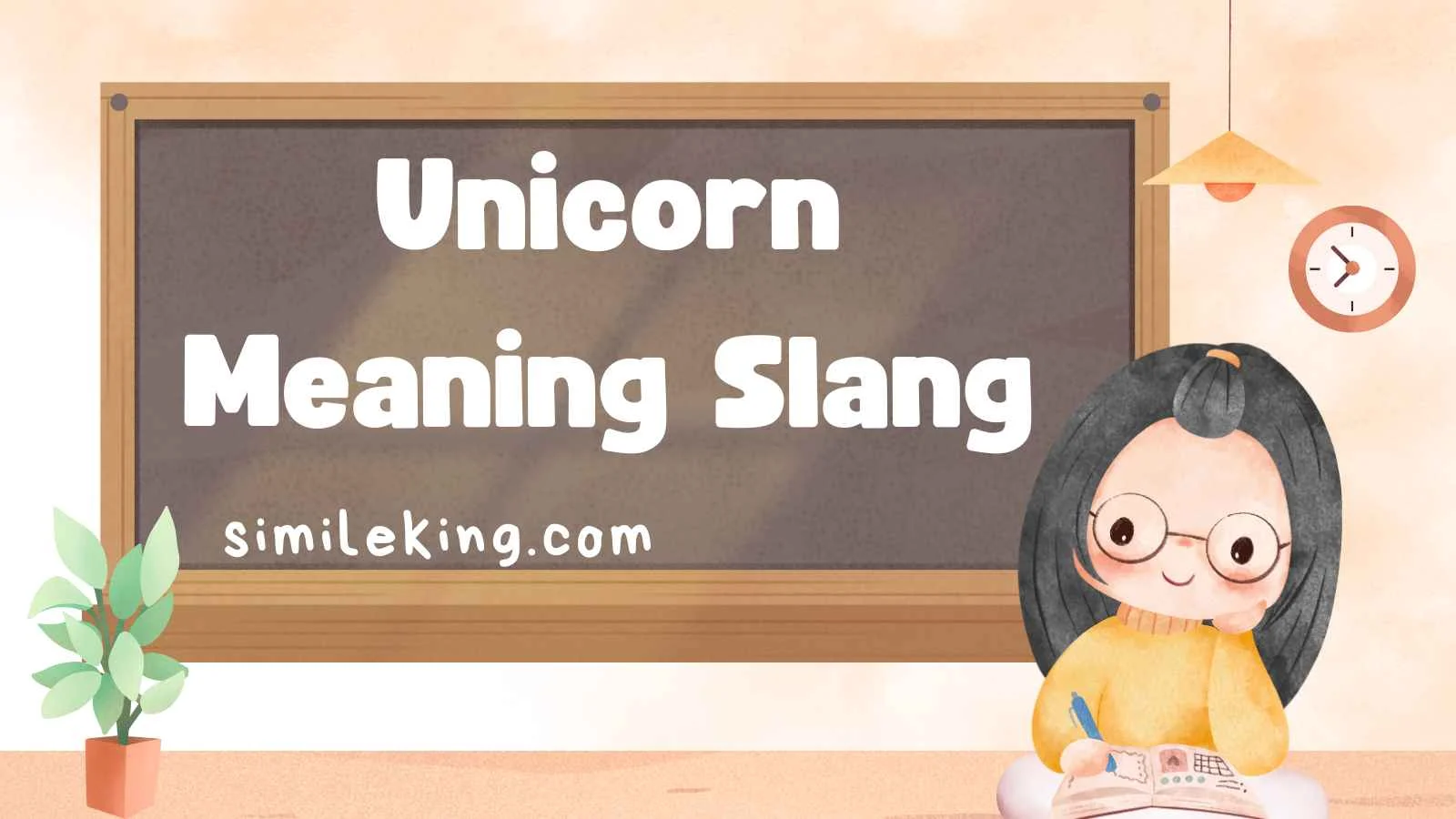In the evolving world of internet slang and digital communication, few words have achieved the cultural weight of the term “unicorn.”
Originally tied to mythology and fantasy, the unicorn has expanded far beyond being a legendary horse with a horn.
In 2025, “unicorn” continues to be a multi-layered slang word that carries different meanings depending on context—from business and technology to relationships, lifestyle, and even online culture.
This article explores everything you need to know about the slang meaning of “unicorn” in 2025—its definitions, tone variations, polite and casual alternatives, cultural relevance, and real-life texting examples you can use.
What Does “Unicorn” Mean in Slang?
At its core, “unicorn” in slang refers to something or someone that is exceptionally rare, desirable, or unique. However, the nuance shifts depending on the setting:
- Business/Tech: A startup valued at over $1 billion.
- Dating/Relationships: A person who fulfills rare desires, often someone who is open to joining an existing couple (in poly or open relationships).
- Everyday Slang: Someone unusually talented, authentic, or special.
- Internet Culture: A term of admiration for rarity, beauty, or uniqueness.
By 2025, the slang meaning has become fluid and context-driven—what makes someone or something a “unicorn” is less about strict definition and more about how rare and celebrated it feels.
Why “Unicorn” Became a Slang Power Word
Unlike many slang terms that fade, “unicorn” endures because:
- Universality – The imagery of a unicorn is understood globally.
- Positive Connotation – It always implies something good: rare, valuable, magical, or one-of-a-kind.
- Adaptability – It works in professional, casual, and even humorous contexts.
- Digital Longevity – Memes, TikTok trends, and Gen Z slang keep reinventing it.
The Nuances of Tone: How “Unicorn” Changes Meaning
The same word can feel polite, professional, or casual depending on delivery.
- Professional tone: “Our CEO is a unicorn in the industry—combining creativity and leadership.”
- Polite admiration: “You’re a unicorn—you bring such a rare energy to the team.”
- Casual or playful: “She’s a total unicorn; you won’t find anyone else like her.”
Being aware of tone ensures the slang feels appropriate for the setting, especially in work emails versus texting friends.
Alternatives to “Unicorn” in Different Contexts
Since “unicorn” is often overused, here are refined alternatives you can use:
- Professional Settings: “One-of-a-kind,” “industry gem,” “rare talent.”
- Personal Compliments: “Special soul,” “rare find,” “irreplaceable.”
- Casual/Internet Slang: “GOAT (Greatest of All Time),” “legend,” “rare gem.”
Each option mirrors the same sense of rarity but aligns with context.
10 Polished Examples of “Unicorn” in Use
Here are carefully crafted examples that show how to use “unicorn” in 2025 conversations:
- Business/Tech:
“Securing investment for a unicorn startup has become tougher in 2025, but true innovation always finds support.” - Workplace Praise:
“You handled that project like a unicorn—bringing creativity no one else could.” - Friendship Compliment:
“Bestie, you’re my unicorn. Friends like you don’t come around twice.” - Romantic Tone:
“Meeting you felt like finding a unicorn—rare and magical.” - Dating Slang:
“She’s their unicorn—open-minded, confident, and rare in the dating scene.” - Pop Culture Reference:
“That indie band is a unicorn in today’s music industry—genuine talent without overproduction.” - Sports/Performance:
“He’s a unicorn on the field—strength and speed in one player.” - Online Community:
“In gaming, a teammate who’s both skilled and kind is basically a unicorn.” - Polite Professional Note:
“Her leadership is a unicorn trait—hard to find and deeply valued.” - Casual Humor:
“If someone actually replies in the group chat, they’re a unicorn.”
These examples cover the spectrum of usage from workplace communication to texting humor.
The Rise of “Unicorn” in Digital Culture (2025 Update)
In 2025, social platforms have reshaped how unicorn is used:
- TikTok: Often used in captions about rare beauty, fashion, or talents.
- Instagram: Hashtags like #UnicornEnergy highlight uniqueness or authenticity.
- LinkedIn: Still heavily tied to unicorn startups and rare career opportunities.
- Discord/Reddit: Used humorously to describe rare gamers, coders, or niche fandom talents.
When to Use “Unicorn” (and When Not To)
- ✅ Use when you want to emphasize rarity or admiration.
- ✅ Works well in positive, uplifting tones.
- ❌ Avoid in serious professional documents unless contextually relevant (e.g., investment).
- ❌ Don’t overuse—it loses impact when applied to everything.
Choosing the Best Expression Depending on Context
Here’s a breakdown for clarity:
- Formal situations: “Exceptional talent” > “unicorn.”
- Polite compliments: “You’re one in a million” feels warmer and less trendy.
- Casual conversations: “Unicorn” is playful and widely understood.
- Texting/social media: Stick to “unicorn” for its meme and slang power.
The Future of “Unicorn” as Slang
Looking ahead, experts predict that “unicorn” will remain a cultural staple for at least the next decade. Its flexibility ensures it survives where other slang fades. In fact, by 2025:
- Corporate spaces use it as shorthand for innovation.
- Gen Z & Gen Alpha use it as a compliment for uniqueness.
- Memes ensure it stays fresh, pairing the magical creature with humor.
Its enduring strength lies in its ability to capture rarity + positivity in just one word.
Final Thoughts
The slang term “unicorn” in 2025 is more than a buzzword—it’s a cultural symbol of rarity, magic, and value. Whether you’re calling a friend your unicorn, describing a billion-dollar startup, or celebrating someone’s unique qualities, the word has a universal charm that adapts to both professional and casual settings.
By understanding the nuances, tone, and best alternatives, you can make “unicorn” work powerfully in your conversations—without sounding repetitive or cliché.





